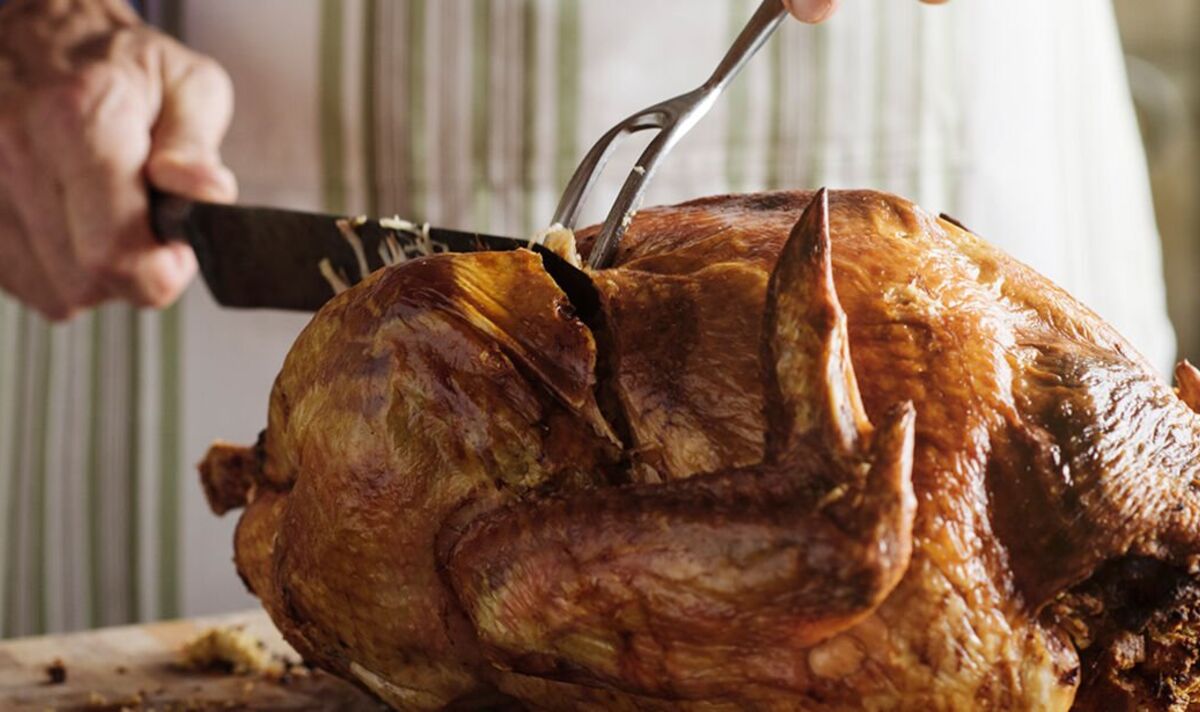High cholesterol: Nutritionist reveals top prevention tips
We use your sign-up to provide content in ways you’ve consented to and to improve our understanding of you. This may include adverts from us and 3rd parties based on our understanding. You can unsubscribe at any time. More info
Arthritis is an umbrella term for joint problems. One that afflicts many Britons is gout – a type of arthritis caused by monosodium urate crystals forming inside and around the joints, which can lead to sudden flare ups of severe pain, heat, and swelling. This particularly affects the joints of the foot, especially the big toe, knee, ankle and wrist, and under the skin. Certain means can trigger painful gout symptoms.
To understand why, it’s important to first wrap your head around what causes gout.
“The most common cause of gout is high levels of uric acid in the bloodstream, medically known as hyperuricemia,” explained Cheryl Lythgoe, Matron at not-for-profit healthcare provider Benenden Health.
The expert continued: “Uric acid is a chemical that is produced when your body breaks down food and drink that contain organic compounds called purines.
“Purines are found in almost everything you eat and drink, however certain substances contain more than others.”

The “worst” foods for gout are those which are high in sugar and fat, meats such as bacon, turkey, beef, veal, venison, and organ meats such as liver, warned Ms Lythgoe.
Seafood and shellfish are also culprits, the expert said.
Research bears out these claims. A study published in The New England Journal of Medicine found eating a lot of meat and seafood increased the risk of gout.
Over a 12-year period, researchers prospectively examined the relationship between purported dietary risk factors and new cases of gout among 47,150 men who had no history of gout at the start of the study.
DON’T MISS
Andrea Bocelli on his lifelong health battle – symptoms to spot [INSIGHT]
Cancer signs that strike in the morning – how to respond [ADVICE]
Blood clots: Four types of drink to avoid [TIPS]
They used a supplementary questionnaire to ascertain whether participants met the American College of Rheumatology survey criteria for gout.
Diet was assessed every four years by means of a food-frequency questionnaire.
Higher levels of meat and seafood consumption was found to be associated with an increased risk of gout, whereas a higher level of consumption of dairy products was associated with a decreased risk.
Moderate intake of purine-rich vegetables or protein was not associated with an increased risk of gout.

What else should you watch out for?
The more alcohol a person consumes, the more likely they are to develop or trigger gout symptoms, warned Ms Lythgoe.
“Not all alcohol is created equal when it comes to uric acid levels either, with regular beers having one of the highest purine content and some low alcohol beers having more than double the amount of purine than regular beers,” she said.
Spirits and wine also contain purine so it’s “better to avoid all together”.
According to the specialist, if you enjoy the occasional tipple that’s okay, but it’s important to try and moderate consumption.

Alcohol isn’t our only factor to consider as it’s also important to manage your diet appropriately.
“It is important to eat a varied diet high in whole grains, fruit, and vegetables to reduce the risk of a flare up,” Ms Lythgoe said.
The Department of Health also recommends limiting alcohol to 14 units a week and avoiding surgery drinks and snacks, processed food such as white bread, cakes, and full fat dairy products such as cheese and milk, where possible.
“Other causes of gout can be crash dieting, stress, illness, and certain medications such as water tablets and aspirin,” added the expert.
Source: Read Full Article
